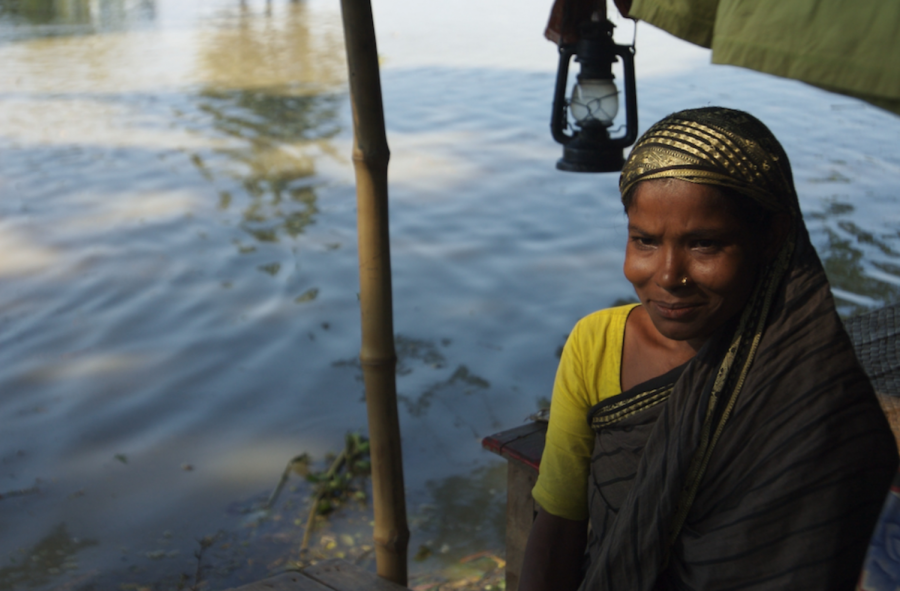Why Developing Countries are Unheard of in Climate Discussions
Although developed countries have an outsized contribution to climate change debacles, they are not the ones surviving intensely magnified global warming ramifications. The struggles of combatting the brunt of climate change in developing nations are often unheard of, but so is the overall invisibility of third world countries in the frame of global warming fiascos.
The unfairness is overt, but so is the legitimacy of it. A study conducted by the Center for Global Development found European nations along with The United States have been the prominent culprits of skyrocketing carbon emissions for nearly a century. Areas such as South Asia, along with Sub-Saharan Africa, have contributed less than 3% of all historical carbon emissions but yet, a 2018 World Bank report in March projects describes them within the three most vulnerable regions(1).
“What do you mean? It’s Cold Outside!”
The fundamental reason why this disproportionality takes place is due to ignorance on behalf of those who provoke the largest climate consequences. The horrific ideology of climate change denial has tragically saturated the U.S. presidential administration. Though it is convoluted to deduce Trump’s ultimate views regarding our ongoing climate crisis, he has a well-established track record of skepticism and denial. Despite Trump’s climate change controversy, on September 24, 2019, Statista disclosed two of the most developed countries, the U.S. and Australia, are by far home to the most climate deniers(2).
The outset of climate change denial begins with a mis-definition of climate itself. “In the beautiful Midwest, windchill temperatures are reaching minus 60 degrees, the coldest ever recorded,” President Donald J. Trump tweeted on January 28, 2019. “In coming days, expected to get even colder. People can’t last outside even for minutes. What the hell is going on with Global Warming? Please come back fast, we need you!”
A report issued by the European Journal of American American Studies broke down to the crux of the behavior in Trump’s tweet. The report proved developed nations, specifically the U.S., leave their sentiments of urgency regarding climate change contingent upon a highly limited scope of knowledge, acknowledging merely the events correlated to that country and setting aside others(3).
The beginning of real climate change mitigation begins with a globally aware mindset, because currently, as the world burns, in air-conditioned bungalows-politicians and bureaucrats recline and stare.
Climate refers to how the atmosphere acts over a long period of time, while weather describes what’s happening on a much shorter time scale. Or, to use an analogy Mr. Trump might appreciate, the weather is how much money you have in your pocket today, whereas climate is your net worth. A billionaire who has forgotten his wallet one day is not poor, any more than cold weather in the U.S. makes South Asian countries less warm. A study conducted by Academia found that this misdefintion is not rare and must be defined clearly in the public sphere.
“Your country, your problem.”
So as wealthy nations appear determined to suffocate the Earth in ecological havoc, the ongoing climate hardships distinctly torture developing countries, who possess the lowest abilities to afford the consequences.
Keeping in mind their locations, growing poverty, and weak post-disaster resilience systems, it is often forgotten that their vulnerability curbs their capacity to prevent and respond to climate change devastations.
For instance, while citizens of the U.S. may barely feel any extent of climate change devastating their weather, it has holistically destroyed the very idea of monsoons in South Asian countries(5).
Even worse, climate change has the potential to reverse significant development milestones made in these nations. Infrastructure and agriculture in the dense rural areas of developing countries, put in place after much difficulty, are permanently damaged by increasingly frequent, brutal natural disasters(3).
Exposing Suffering or Hogging the Spotlight?
The predicament further proliferates when the mentioned damages are not given proper international news coverage as required to raise truly international climate change awareness. Unfortunately, the struggles of developing nations are similar to rumors, which are long whispered about but never discussed openly.
There has been a clear regional bias. Around 17% of disasters in Europe and Latin America made it into the broadcast, compared with less than 5% of those in Africa and Asia-Pacific. Depressingly, in order for a climate-based disaster in Africa to receive the same level of coverage as one in Europe, 45 times as many people must be killed(5).
They also found that the media was more likely to cover disasters with lots of deaths — “if it bleeds, it leads.” A tenfold increase in the number of people killed by a disaster increased the likelihood of news coverage by 10 percent. By contrast, a tenfold increase in the number of people affected by a disaster only generated a 3 percent increase in coverage(5).
While dramatic disasters like volcanoes or tsunamis are intensely newsworthy, some major catastrophes, despite causing significant turmoil and suffering, lack media focus and fail to attain the degree impact necessary for humanitarian aid(6).
For instance, major droughts and famine are still largely detrimental in South Sudan, yet western governments choose to ignore them. The trend seems to be that if the disaster is limited to a certain country or area and can’t affect the richer corners of the world then less aid is given(7). In addition, the 2010 floods that wreaked havoc in Pakistan affected more people than the 2004 Indian Ocean tsunami, the 2010 Haiti earthquake, and the 2005 Pakistan earthquake combined. Yet, the other still received far more attention and thus, far more international aid(5).
But flawed prioritization isn’t enough to trigger such massive waves of insensitivity. The reporting of climate disasters is frequently repetitious and dull, delivered in almost identical tones and formats. Within developed countries, particularly in the U.S., weather dramas are so frequently predicted that dire warnings have long lost their impact(8).
These concerns all bind together to create a massive loophole in providing climate change relief to developing countries. Media attention in these particular climate catastrophes is especially critical since relief decisions are often driven by the amount of news coverage pertaining to disasters. The immense influence of media portrayal changes the entire climate change perception in developed countries, fostering notions such as climate change denial and global obliviousness.
Replacing the Climate Telescope Lense
These misconceptions and the underlying oblivion regarding developing countries have plagued climate discussions for far too long and far too thoroughly. It is time to reframe the climate debate. The obligation to mitigate climate change belongs to all of us and thus, a global problem demands a global approach.
The notion that global warming is a different case for different countries is an absolute fallacy. It belongs to everyone; it is only its partial implications that drown developing countries to a state of desperation and poison developed ones into a state of nonchalance. We will look back at this time and be ashamed. How did we let this happen to them? Although, developing countries, such as India, are formulating action plans to aid themselves, they need help finding the money, resources, and technology without drowning themselves much further in devastating poverty(9)
It is necessary for international news channels to re-prioritize and reconsider their news regarding natural disasters or anything related to the environment in general. Equal news coverage regarding climate disasters taking place in developing countries should be an ethical rule to abide by.
A reformed outlet of international news brings accurate depth to climate change discussions. The new, unique notion that ultimately must be brought to the table in order to establish realistic progress is that climate action cannot be perceived in isolation nor in disunion. Planting the concept within developed nations that their present weather is not necessarily the international climate along with an understanding that regional actions result in international outcomes is undeniably imperative.
All too often, solutions to critical problems face resistance from those in developed nations who fail to see beyond the dollar signs. But in the case of global warming, we have little choice. By sharing and acknowledging the plight of developing countries in climate crises we will, in turn, expand, advance and diversify our environmental resilience, the richness of our shared way of life, and the quality of our existence. Because, Earth is stronger than its fears, greater than its limits, and more than just one country.






